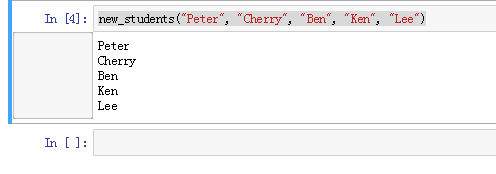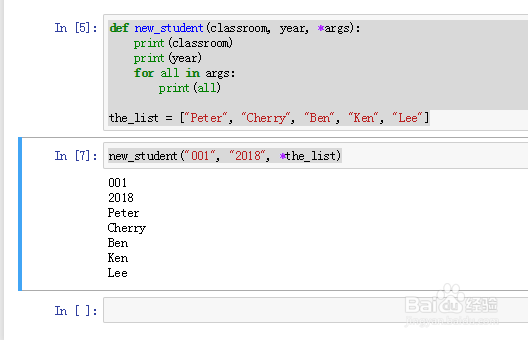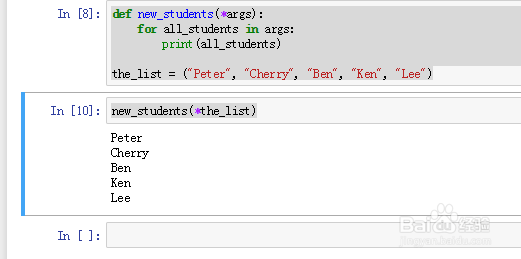如何运用PYTHON里*args和*kwargs
1、打开Python,新建一个空白的PY文档。

2、def new_students(*args): for all_students in args: print(all_students)the_list = ["Peter", "Cherry", "Ben", "Ken", "Lee"]new_students(*the_list)首先我们用for loops来把list里面的所有值给打印出来。

3、def new_students(*args): for all_students in args: print(all_students)the_list = ["Peter", "Cherry", "Ben", "Ken", "Lee"]new_students(the_list)如果不加*,那么只会整个列表呈现出来,而不是只把值给返回来。

4、new_students("Peter", "Cherry", "Ben", "Ken", "Lee")虽然可以用普通的方式把列表的值给打印出来,但是如果里面的值非常多,那么工作量很大,而且容易出错,所以*args可以很好地表现。

5、def new_student(classroom, year, *args): print(classroom) print(year) for all in args: print(all)the_list = ["Peter", "Cherry", "Ben", "Ken", "Lee"]new_student("001", "2018", *the_list)增加两个变量在前面也不影响使用。

6、def new_students(*args): for all_students in args: print(all_students)the_list = ("Peter", "Cherry", "Ben", "Ken", "Lee")new_students(*the_list)除了list,tuples也是可以运用得上。

7、def details(**kwargs): for key, value in kwargs.items(): print(key) print(value)contact = {"Peter":"18", "Alice":"16", "Ben":"17"}details(**contact)**kwargs对应的要用dictionary。
